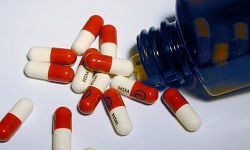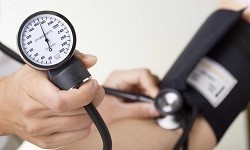- Causes of pathology
- Elimination of constipation
- Features of nutrition
- Related video
Following the removal of the gallbladder or other operation under anesthesia, there is an intestinal atony that manifests itself in the form of constipation. There are several causes of coprostasis and most of them are temporary. Treatment of constipation after removal of the gallbladder depends on the type of surgery, the presence of complications, the rate of bile secretion.
Causes of pathology
Constipation after removal of the gallbladder occurs as a result of decreased intestinal peristalsis and dehydration of stool. There are several reasons for this:
- Mechanical injury of abdominal tissues .Regardless of the type of surgical intervention, cuts are made in the abdominal wall. As a protective mechanism in the regeneration period, connective tissue fusion( adhesions) can form. First, the resulting connective tissue is loose, and then it becomes denser( for 1-3 weeks), and sometimes even hardens. Spikes are strands that hold the peritoneum and internal organs, as a result of which the mobility of the intestinal loops is limited, which can lead to disruption of its functions. Adhesive disease can provoke complete disappearance of peristalsis or intestinal obstruction, fraught with fatal consequences.
- Side effect of anesthesia .Anesthesia causes relaxation of the smooth muscles of the intestine. As a result, fecal stagnation occurs, which quickly dehydrate and harden. Dense feces with difficulty move in the weakened intestines, hence the stool retention.
- Decreased physical activity .In the postoperative period, the patient is forced, because of the pain and risk of divergence, to restrict physical activity and stay in bed most of the time, which is why atony of the intestine arises.
- Taking medicines .Many drugs act on the nervous apparatus of the intestine or affect electrolyte metabolism. For example, constipation can cause antibiotics, antacids, diuretics, antispasmodics.
- Changing the acidity of gastric juice .After the gallbladder has been removed, bile is constantly present in the duodenum. If non-compliance with dietary recommendations, it irritates the mucous and sphincter, which leads to relaxation of the latter and the penetration of bile into the stomach. When the concentration of hydrochloric acid is changed, the bowel function is disrupted.
- Change in the composition of bile .Over time, the bile becomes lithogenic, that is, prone to the formation of stones. It increases the amount of cholesterol, but reduces the content of bile acids with lecithin. Such bile irritates the intestinal wall, which leads to an inflammatory process and a decrease in peristalsis.
- Lack of liquid .Some patients do not drink the necessary amount of fluid in the postoperative and rehabilitation period. When there is a shortage of liquid, the stool masses become denser and are able to form stool stones that interfere with the intestinal contents.
- Dietary food .After the operation to remove the gallbladder, the digestive system must adapt to the absence of an organ. A diet is prescribed, which involves the absence of fiber in the diet, which is the main stimulator of intestinal motility.
Some of these factors affect the body for several days, while others arise after a long time. For example, from anesthesia the body departs for several hours, and the formation of adhesions takes 21 days. Do not forget that a person has a gallbladder removed, the function of which was to accumulate bile and throw it into the duodenum at the time of receipt of chyme.
In the gallbladder, bile was upheld and became more concentrated, thereby improving digestion. And the amount of the secret arrived depended on how much the mechanical and chemical receptors were irritated, that is, the more food entered the stomach and the fatter it was, the more enzymes were thrown away.
After cholecystectomy, bile enters the small intestine at all times, which is why the digestive process is disrupted and the intestinal peristalsis is slowed down. To accelerate the cleavage, it is recommended to adhere to a diet that requires the use of only those products that do not need a lot of enzymes and organic substances to digest.

Failure to comply with the diet causes reflux, flatulence, inflammation of the duodenum, motor disruption
Remedying of constipation
To reduce the risk of constipation and other consequences of gallbladder removal, it is recommended to adhere to dietary nutrition. Health food is the most important component of the rehabilitation period, it depends on its compliance, whether there will be complications.
The first days after surgery, most patients have stool retention, as the body departs from anesthesia, the energy value of the diet is reduced, the amount of fluid and exercise is limited. If necessary, the attending physician prescribes symptomatic therapy( taking laxatives, physiotherapy, massage).
A week after the operation, the doctor will determine the most suitable diet for the patient, taking into account the severity of the symptoms of cholecystitis, concomitant diseases, the presence of complications. If there are no complications, then the No5A diet is prescribed, the task of which is to normalize the hepatobiliary system and ensure shining of the gastrointestinal tract.
If post-choledocystectomy syndrome developed, in which duodenitis, gastritis or hepatitis worsened due to increased bile secretion, the No5CH diet is prescribed. This therapeutic diet assumes the complete exclusion of fiber, which often leads to intestinal atony. With the development of cholestasis syndrome, the No5Z diet is prescribed, which stimulates bile secretion.
Thus, the diet during the rehabilitation period depends on the nature of bile secretion and can exclude or recommend the use of fiber, which is the main amplifier of intestinal motility. But it is possible to stimulate peristalsis with fermented milk products, vegetable oil, porridges cooked on water, cold drinks, freshly squeezed juices.

In the postoperative period, a rather strict diet is required that will allow the digestive tract to adapt to the changed conditions of
. After removal of the gallbladder with the permission of the doctor, you can take advantage of the traditional medicine recipes:
- drink in the morning on an empty stomach a glass of beet juice and the same amount during the day;
- one hour before breakfast, drink 150 ml of potato juice;
- on an empty stomach to eat a handful of prunes;
- in the morning before meals to drink a tablespoon of any vegetable oil;
- drink a freshly prepared carrot or pumpkin juice every day.
The intake of laxatives does not affect the cause of constipation, but only once provokes bowel evacuation. Medicines are available in the form of tablets, suppositories, solutions. The patient may be recommended Bisacodyl, Bekunis, Fortrans, Dufalac, Exportal, Mikrolaks, syrup with lactulose, probiotics and prebiotics, suppositories with glycerin.
In the rehabilitation period, constipation after removal of the gallbladder is quite an expected symptom. With the observance of dietary recommendations and with the help of medicamental treatment, it is possible to restore the normal frequency of the stool rather quickly. But if the symptom, despite the compliance with the diet, does not last for several months, then we can talk about the development of chronic constipation.
The reason for this may be postoperative complications( spikes), diseases of the digestive system, drug therapy, stress. To find out and eliminate the cause, you need to undergo a medical examination. To suspect the development of adhesions, the surgeon may, during the initial examination, on the basis of the patient's complaints, the presence of an operative intervention and an infectious disease in an anamnesis.

If it is not possible to restore the rhythm of defecation, then prescription drug therapy symptomatic therapy
To confirm the diagnosis, ultrasound, radiography, laparoscopy of the abdominal organs can be performed. The emergence of adhesions after the operation to remove the gallbladder can be avoided if you carry out preventive measures. It is recommended to get up as soon as possible after the operation, walk alone, turn over, and do not strain your abdominal muscles.
It is necessary to provide a full digestion, with the delay of the stool to consult the gastroenterologist. If constipation occurs against a background of gastritis, then the level of acidity of gastric juice is revealed, on the basis of which a medical diet and medication are made. With increased acidity, it is recommended to consume more sour-milk products, and with a reduced acidic fruit will help.
Features of food
To avoid constipation, the following foods are recommended:
- soups with vegetables and cereals;
- dried bread, crackers, biscuit, biscuit biscuits;
- dietary meat and fish;
- sour-milk products( kefir, fermented milk, curdled milk, cottage cheese, neoprene cheese);
- eggs boiled soft-boiled or scrambled eggs;
- oats or buckwheat;
- vegetable salads dressed with oil. From vegetables you can eat carrots, cucumbers, tomatoes, zucchini, cauliflower, broccoli;
- sweet fruit and berries and juices from them;
- dried fruits and nuts;
- paste, jelly, marmalade, marshmallow;
- tea black and green, broth of wild rose, mineral water without gas.
To reduce the mechanical irritation of the digestive tract, it is necessary to grind all the dishes, and the porridges should be well-boiled, the vegetables are finely chopped. Chemical shoeing involves cooking steamed or boiling.
After the operation to remove the gallbladder, a person should exclude from his diet:
- soups on any broth;
- refractory fats;
- fatty meat and fish;
- smoked meat, canned food;
- fresh bread;
- hard boiled and fried eggs;
- dairy products with high fat content;
- sauces( mayonnaise, ketchup, mustard);
- confectionery, ice cream;
- black coffee, alcohol, carbonated drinks, cocoa;
- any sharp, fatty and fried foods.

After removal of the gallbladder, not only the diet, but also the food intake schedule is important.
It is necessary to eat at a certain time of the day and with a small time interval between meals. So the conditioned reflex will be developed, and the liver secret will be synthesized by a certain time, and fractional nutrition will not allow the bile to accumulate in the duodenal process.
To get rid of constipation during rehabilitation, it is recommended to arrange six meals a day, and a quarter of an hour before a meal to drink a glass of water to stimulate the outflow of bile. After removal of the gallbladder, the body takes about a year to adapt. During this time it is necessary to adhere to a strict diet and completely exclude foods that are long digested or irritate the digestive tract.
Often the inflammatory process in the digestive tract spreads to neighboring organs, so constipation is not always the result of cholecystectomy, in some cases it is a sign of another disease. Therefore, with the development of chronic constipation, you need to see a doctor and get tested. What you need to do to get rid of the symptom, the doctor will tell after determining the cause of the violation.



